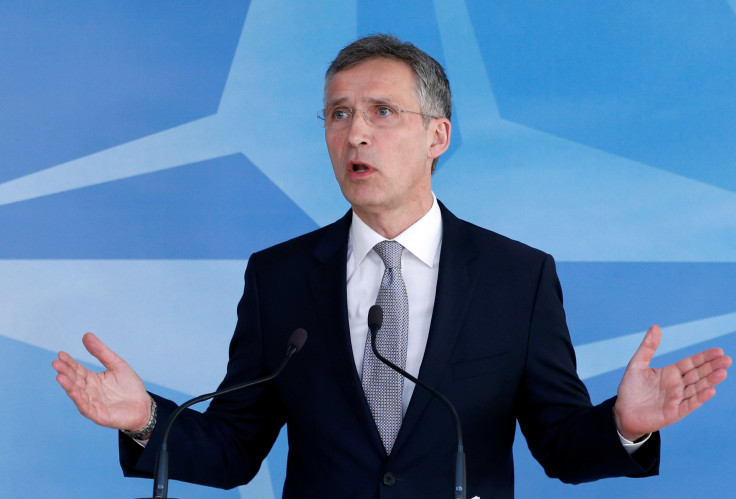Russia-NATO Relations 2016 Update: Meeting Fails To Mend Relationship Amid Aggressive Military Maneuvers, Ukraine Crisis

The first meeting of the NATO-Russia Council since June 2014 and the height of the conflict in Ukraine, did not lead to any major breakthroughs in relations Wednesday, the head of the military and political alliance said.
“NATO and Russia have profound and persistent disagreements. Today’s meeting did not change that,” said NATO Secretary-General Jens Stoltenberg. “NATO allies remain firm that there can be no return to practical cooperation until Russia returns to the respect of international law. But we will keep channels of communication open.”
The meeting, which ran 90 minutes over schedule, focused on the crisis in Ukraine, military activity, risk reduction and the security situation in Afghanistan. The low level of relations dates to March 2014, when Moscow annexed Crimea from Ukraine. The subsequent war in Eastern Ukraine has pitted government troops against Russian-backed rebels, leaving over 9,000 dead and over 1.4 million displaced amid increased security concerns from neighboring NATO member states.
Stoltenberg said NATO made clear it does not recognize the illegal annexation of Crimea and that Russia must comply with the terms of the Minsk II agreement meant to end the conflict.
After #NATO-#Russia council, @jensstoltenberg stresses importance of political dialogue https://t.co/RC7oThfuIs pic.twitter.com/6lLqbluAih
— NATO (@NATO) April 20, 2016
The meeting comes amid increased tensions in the Baltic region. Russian warplanes buzzed a U.S. Navy destroy in the Baltic Sea last week and intercepted a U.S. Air Force plane in the region. “It is important to consider what steps we can all take to increase transparency and predictability,” Stoltenberg said regarding the incidents.
Despite the meeting, Russia said it was responding to NATO’s increased military buildup in Central and Eastern Europe by increasing its own military resources on its western border.
“The NATO countries’ defense spending is increasing. I mean that we see all this, note this and take the appropriate military-technical measures,” Russian Deputy Defense Minister Anatoly Antonov said Wednesday, Russian state news agency Tass reported. “However, I would like to emphasize: We are against an arms race, no matter who imposes it on us.”
Russian President Vladimir Putin has long accused NATO of encroaching on Russia’s sphere of influence in the region. The NATO-Russia Council was established in 2002 to serve as a forum between the alliance and the Kremlin. The last meeting was held in June 2014.
NATO will hold its next major meeting in Warsaw in July, where discussions of increased troop levels in Central and Eastern Europe are expected.
Correction, April 20, 2016, 10:50 a.m. EDT: A previous version of this article incorrectly reported this was the first meeting of the NATO-Russia Council since the start of the Ukraine crisis. The NATO-Russia Council met in March and June 2014. The text of the article has been updated to reflect this correction.
© Copyright IBTimes 2024. All rights reserved.






















